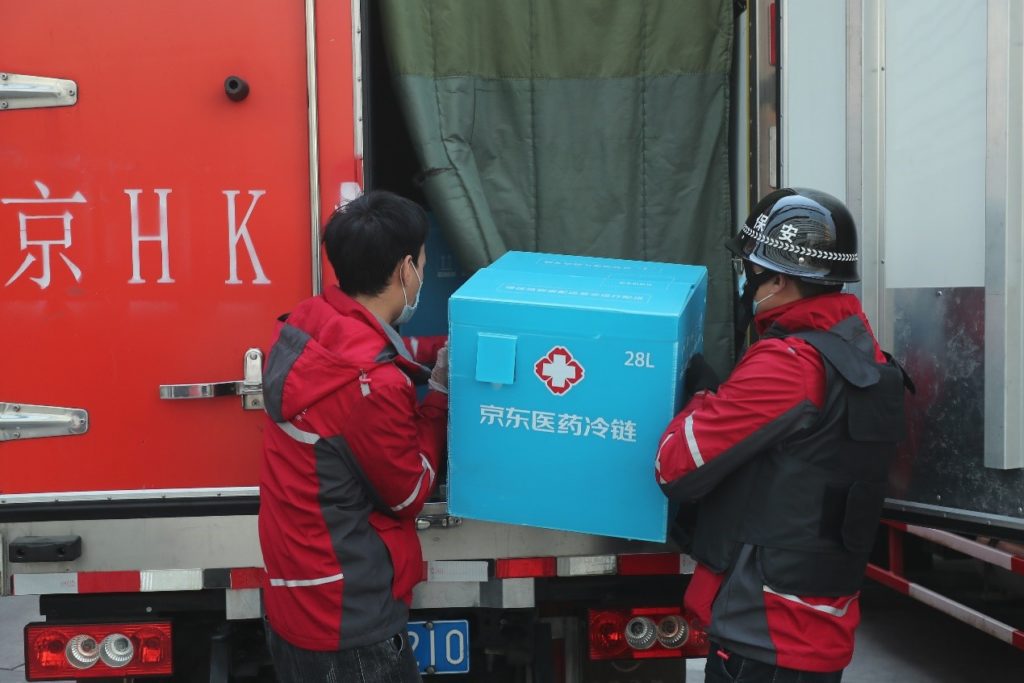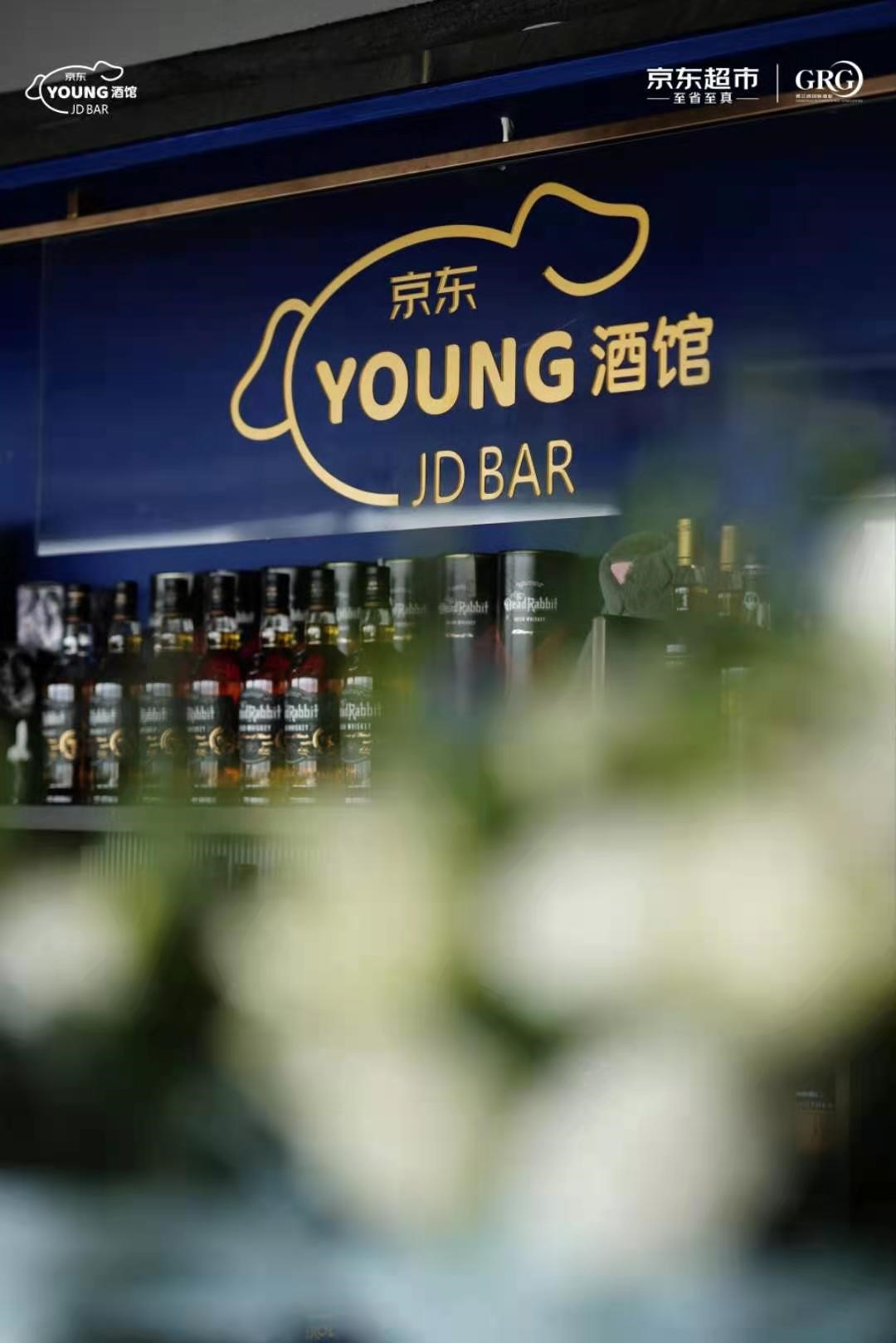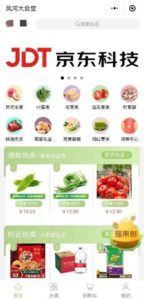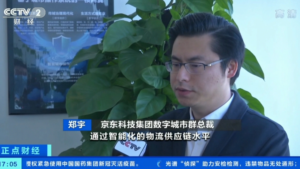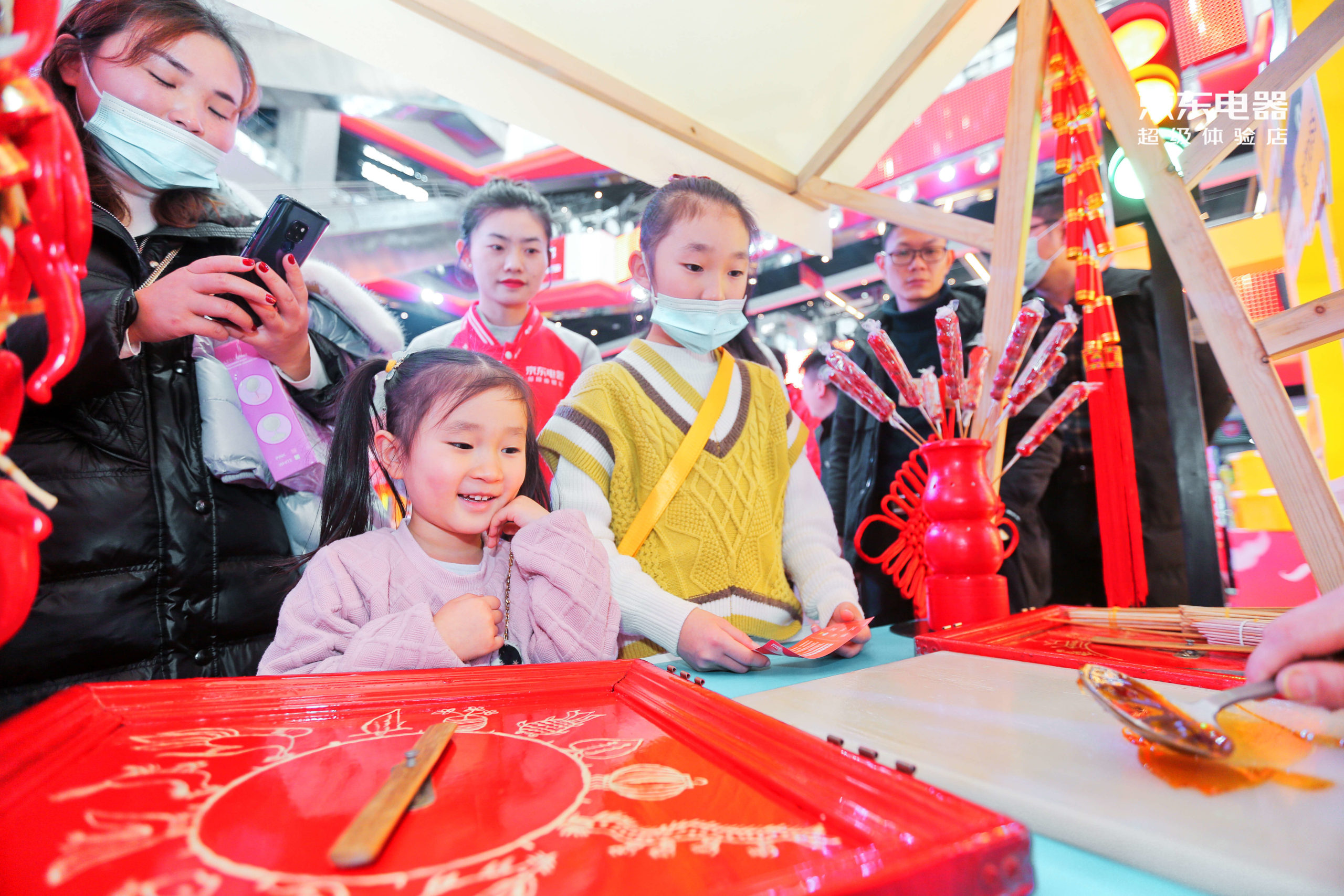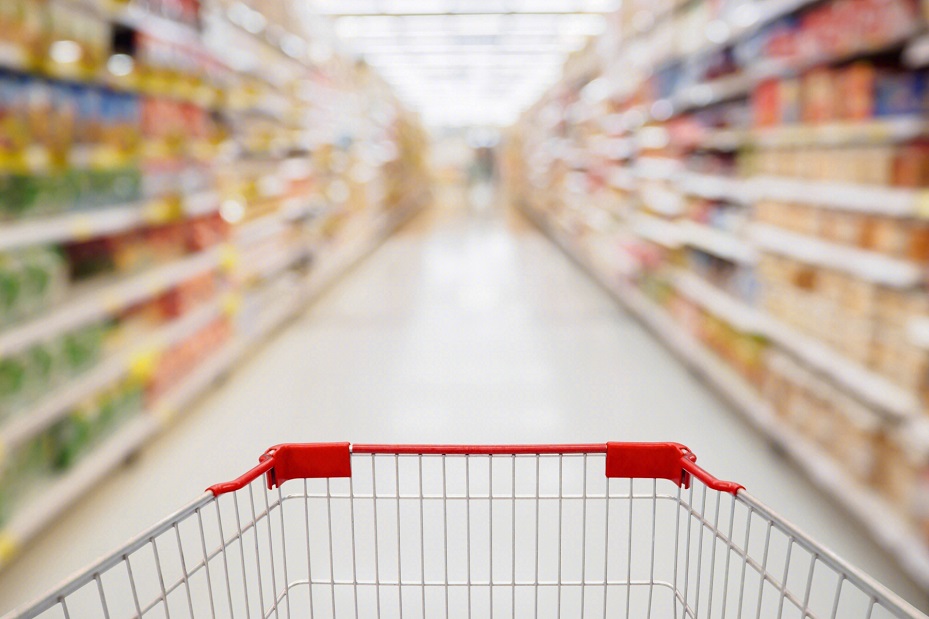by Rachel Liu
Last August, JD upgraded Yihaodian, the ecommerce platform it acquired in 2016, to Yihaodian Membership Store, the first online membership-only retail platform in China.
Unlike JD, which covers all categories and customer groups, Yihaodian focuses on middle-class family customers who demand high quality products with competitive prices. While you can buy everything you need on JD, Yihaodian can also provide a fresh shopping experience.
Carefully selected 10,000 SKUs
The first difference that customers will notice is the products. Yihaodian provides only around 10,000 SKUs, far less compared with millions of SKUs on JD. However, the products are carefully selected based on the preferences of Yihaodian’s members – they are usually middle-aged, married, living in first and second-tier cities, and in charge of shopping for the whole family. They want high-quality products, but not overpriced.
Take eggs for example: On Yihaodian, customers can only find less than ten SKUs of eggs, but each of them are quality products from well-known brands. The water products are all boxed – suited for family customers, and mostly from evian, Voss, and Perrier. Fresh food and daily use products are the key categories for Yihaodian, because they attract members to repurchase constantly. Additionally, the platform provides products that are widely welcomed by middle-class customers, such as Dyson hair dryers, French wine and Estee Lauder skincare products.
The second difference is that the shopping experience on Yihaodian is straight-forward. Customers do not need to wait for coupons or get lost in complicated promotions, because the prices stay the same during the whole year. Even before the upcoming Chinese New Year, as customers are stocking up for the festival, Yihaodian has kept its prices unchanged. The every-day-low-price style provides the members peace of mind, knowing whenever they come to shop, they will enjoy the best price.
With paid memberships becoming more and more common for ecommerce platforms, why does JD feel the need to launch a new membership-only shopping platform, and why is it confident that the model will work in the Chinese market? Behind the platform, who are the people providing a new shopping experience for Chinese consumers?
An exclusive shopping experience
According to McKinsey’s 2020 Report on Chinese Consumers, over half of Chinese families are now relatively rich families with annual disposable income of RMB 140,000 to 300,000 yuan. Based on the McKinsey Report, the middle class in China is growing: in 2010, only 8% of city residents were considered to be middle class, and the number increased to 49% in 2018.
JD also studied the growing number of middle class customers in China. A survey on consumption habits of customers from first-tier and new first-tier cities such as Beijing, Shenzhen, Hangzhou show the following characteristics:
1) Customers are most unsatisfied with the prices and product selection of online shopping;
2) Customers like to buy high quality products frequently on more reliable e-commerce platforms;
3) Customers with higher incomes are more likely to accept membership models;
4) Though advertisements and reviews will impact customers’ decisions, the higher the incomes they earn, the less they will be impacted by these factors.
“We upgraded Yihaodian into a membership-only model because we think the demand of the growing number of middle class customers had not been met at that time,” said Tiger Dai, head of Yihaodian. “These customers are rational and are willing to spend reasonable money for products that can make their lives more comfortable. They are busy with work and tired of the complicated campaigns on shopping platforms. Instead of making shopping enjoyable, the promotions are actually making their shopping experience worse. These problems make us see the strong potential of middle class customers.”
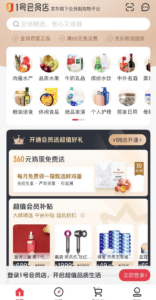
The Yihaodian app
The membership-only model has been quickly accepted by Chinese consumers – think of how many people Costco attracted when it first opened in Shanghai in 2020. Yihaodian inherited the advantages of membership-only supermarkets. The number of products are limited, and some of them are purchased from JD’s first-party stores (think of JD as one of the suppliers for Yihaodian), and others are purchased by Yihaodian’s professional buyer team. Yihaodian uses JD’s logistics and warehouse network to ensure the best delivery experience for its members.
“Our strategy for Yihaodian is very clear,” said Dai. “We didn’t add Yihaodian into the JD ecosystem, because members need a separate shopping scenario which provides a sense of exclusivity. With paid membership, the products and shopping experience need to meet customers’ expectations. We also started to develop our private label brand – One’s Member, because sometimes the products in the market are not entirely suitable for Yihaodian’s members.”
According to Dai, the key advantage of Yihaodian is that it can go deep to the upstream of supply chain, and provide special and high-quality products for customers. This cannot be done without the efforts of Yihaodian’s buyers and supported by JD’s decades of accumulated experience in retail.
“Sister Towel”: It took her 100 days to have a perfect towel
“Sister Towel” is the nickname that Jie Pu got after she joined JD over two years ago. The name was given by her colleagues, the buyer team of Yihaodian, for her obsession and knowledge of towels. She had worked in JD’s home furnishing team as a buyer for two years, and joined Yihaodian about six months ago, in charge of towels and bedding.
When she first came to Yihaodian, her job was to select towels from the sea of products. Pu identified that the main customers of towels on Yihaodian are female customers aging from 35-45, who are highly concerned about the quality of towels, especially on their softness and ability to absorb water. However, as she started to select products, the first batch of towels she found didn’t pass, because the products she picked were hot-selling ones for general customers, but not the ones that meet the standard for Yihaodian customers.
Pu researched and studied different kinds of towels on the Internet for over a week, and a Japanese brand UCHINO caught her eyes. The brand uses a special technique called zero-twisted, which makes the towel smoother when drying off. The zero-twisted towels are also softer to touch and are lighter than usual towels. Although the towel cannot be considered cheap, it has become one of the top-selling products under Pu’s assigned category.

The pile of different kinds of towels on Pu’s desk
Although she took the first successful step, Pu was still looking for a high-quality product with a more competitive price. At that time, Yihaodian was beginning to develop its own private label brand – One’s Member, and Pu realized that it was a great opportunity to customize a product that is best-suited for its customers.
Hoping to design a towel that is organic, healthy and stands for high-quality lifestyle, she went to dozens of factories to check the raw materials and producing procedure, and bought over 50 towels herself to personally experience the products. She decided to develop a product using 100% cotton, and directly made without any dyes or additives. Because JD is able to directly work with factories to source the products, the price of a face towel is around RMB 17 yuan, which is more competitive than other towels made of organic fabric. According to Pu’s research, it is in the best price range for Yihaodian customers. Pu dedicated about 100 days in total to design the product.

Pu trying different kinds of towels
Being a Yihaodian buyer also added a sweet problem to Pu’s family life. Pu’s husband is working for a company to penetrate lower-tier markets, which is opposite to what Pu does – targeting middle class customers. The difference has impacted their consumption values and often causes light conflicts between the couple. When shopping for the whole family, Pu always want to buy products with higher quality, but her husband always wants “RMB 9.9 yuan for three” kind of products. The couple gradually began to understand more of each other’s work through these sweet conflicts. Now, Pu is working to develop the first bedding product for One’s Member, and she hopes she could again find the best balance between price and quality.
To transform from a “salesperson” to a “buyer”
Xian Wu is a veteran buyer of the food category with 14 years of experience. She used to work in offline stores for many years, and knows everything about how to select hot-selling products according to GMV and customer reviews to generate best sales performance. Sometimes the products were not the healthiest or high quality ones, but at that time, Wu believed they were “good” products.
Her ideas changed after she had her son seven years ago. She became more concerned on the quality of food she provides to her family, and was always looking for healthy food that contained rich microelement and less additive. At that time, she also joined a new company that focused on producing healthy food and snacks. Through this experience, she gained knowledge on the upstream of food supply chain, which set solid ground for her later being a buyer for Yihaodian.
“This is the watershed of my career from being a ‘salesperson’ to a ‘buyer’,” said Wu. “I used to only look at the sales data of the products, but since I had my son, I began to look at the food composition tables. I also learned how to choose the products based on the real demands of customers.”
Nuts were the first product that the Yihaodian team decided to develop for its private label brand, because it has a massive market, and customers have relatively lower brand loyalty to nuts. Taking the mission to develop the new product, Wu found that the nut products on the market were not always ideal, and she decided to provide a healthier choice by choosing high-quality raw material and the simplest ingredients.
One’s Member has launched five kinds of nut products: pistachio, cashew, pecan and mixed nuts, as well as a gift box. Take cashew for example: Wu chose WW240 standard cashews (meaning there are 240 cashews per lb.) originating from Vietnam, and only used sugar or salt to flavor the nuts to better reflect the tastes of the nuts. The nuts are baked instead of deep fried to decrease the amount of oil in the products. Under the product page, a customer wrote: “The nuts are crispy and tasty. The nuts are large and intact. If I was not worried about getting fat, I could eat the whole box.”
The packages of the nuts were also carefully designed. “I found that customers want to have larger boxes of nuts, but nuts can get less crispy if kept too long.” said Wu. “I chose to design 500g per box, if customers have 30-40g nuts each day, which is also the recommended amount, 500g is the perfect amount for about one to two weeks. According to the sales data of the nuts, I do find that many customers would buy the nuts every two weeks. The product has largely increased the repurchase rate of our platform.”
“My families are also having the One’s Member nuts now. I feel very safe because I know the products are healthy and natural. But I also want to tell our customers what I tell my son every day – don’t eat too much nuts each time, 30g to 40g every day is enough for nutrition,” said Wu with a laugh.
Besides “Sister Towel” and Wu, there is a young fresh food buyer born in 1996 who has taken great responsibility during COVID-19 to ensure the supply of imported steaks and eggs; a veteran buyer of fresh food with 7 years of experience and more, and all of them are trying to find the perfect product for customers every day.
Buyers are among the most important assets of Yihaodian, as they are the people who bring value to the members through unique and quality products. “In two years’ time, I hope that over 70% of products on Yihaodian are sourced from channels other than JD, and the number of private-label products can further increase. We hope to provide our members more products that are exclusive on Yihaodian,” said Dai.
(liuchang61@jd.com)


